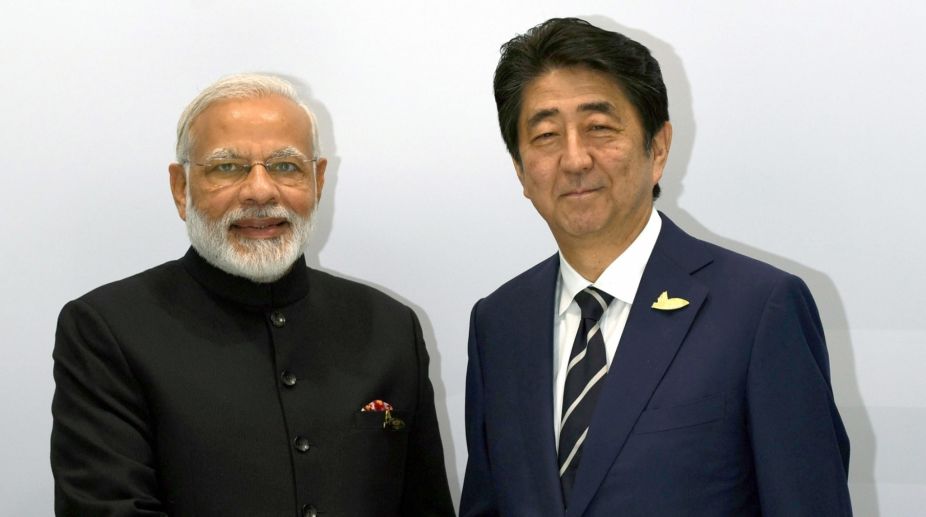Assam’s grand Jhumoir show: 8,000 performers, PM Modi to attend
Assam’s Jhumoir Binandini event on February 24 will feature over 8,000 performers showcasing the traditional Jhumoir dance at Sarusajai Stadium, Guwahati.

Prime Minister Narendra Modi with Japanese Prime Minister Shinzo Abe (PHoto: IANS)
Ahead of Japanese Prime Minister Shinzo Abe’s visit to India later this month for the annual bilateral summit, Foreign Secretary S. Jaishankar said that the future of India-Japan ties lies in nuclear and defence cooperation.
“Cooperation in civil nuclear energy and in defence are two domains that portend the future direction of our ties,” Jaishankar said while addressing the India-Japan Colloquium here.
Advertisement
“The difference that Japan can make to our nuclear industry can be quite substantive,” he said.
Advertisement
“Japan’s openness to supply India with military technology reflects the high level of confidence that the two countries have developed in each other.”
During Prime Minister Narendra Modi’s visit to Japan in November last year for the bilateral summit, the two sides signed an agreement on peaceful use of nuclear energy, among other accords.
In Modi’s earlier visit to Japan in 2014 for the annual summit, the bilateral partnership was upgraded to Special Strategic and Global Partnership.
Jaishankar said that “the growing convergence of views between Japan and India has the capacity to drive Asia’s economy and development and stimulate the global growth”.
“In this regard, the two countries have agreed to cooperate closely to promote connectivity, infrastructure and capacity-building in the regions that occupy the inter-linked waters of the Indo-Pacific,” he stated.
Stating that a broader modernisation of the Indian economy and society was very much in Japan’s larger interest, he said: “This would help create a more multipolar Asia that, in turn, enables a more multi-polar world. From India’s perspective, as the first successful modernising example in Asia, Japan offers capabilities and practices that are particularly relevant to India at this juncture.”
According to the Foreign Secretary, Indian flagship development programmes such as Make in India, Digital India, Skill India and Startup India provide significant new opportunities for further collaboration between the businesses of India and Japan.
“There is immense potential for Japan’s technology, best practices and resources being harnessed to accelerate India’s growth,” he said.
“The enthusiasm of Japanese businesses is reflected in their growing presence in India and in the expansion of their activities.”
India-Japan bilateral trade in 2016-17 stood at $13.61 billion, a decrease of 6.21 per cent from 2015-16 when the figure was $14.51 billion.
As of October 2016, there were 1,305 Japanese companies operating in India, a growth of 6 per cent compared to 1,229 in October 2015.
Jaishankar also highlighted the role of Japan’s Official Development Assistance (ODA) in expediting the rapid modernisation of other Asian nations and said its relevance to constructing a more efficient infrastructure was particularly noteworthy.
“Japan is already working with India in priority infrastructures in India like the Western Dedicated Freight Corridor, the Delhi-Mumbai Industrial Corridor and various Metro rail projects,” he said.
“The Chennai-Bangalore Industrial Corridor is the next one on the horizon. The flagship project of our relationship, of course, is the Mumbai-Ahmedabad High-Speed Railway.”
Jaishankar said that Prime Minister Abe’s forthcoming visit would demonstrate “concretely” that India and Japan were ready to move their relationship forward with determination.
Advertisement